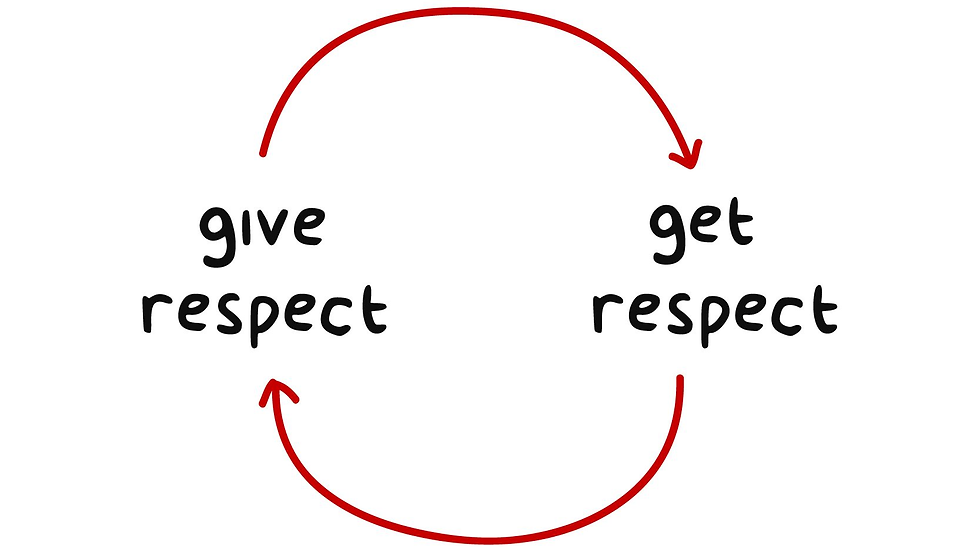Does the concept of professionalism apply to the creative industries?
- samlivingstone01
- Oct 13, 2022
- 4 min read
Updated: Oct 17, 2022

Introduction - What do we mean by the concept of professionalism?
Professionalism can have different meanings depending on the person you ask, and the work place they are within. To put it simply, professionalism is the belief that if one has a high degree of knowledge or skill in a subject, that they must act accordingly - "With good judgement and polite behavior" Merrium-Webster. To adhere to a set of standards believed to make one seem more professional.
Professionalism isn't something you can learn overnight and can take quite a while to fully understand - especially because it can differ so greatly between workplaces. To become a professional in any kind of field takes hard work and dedication.
Professionalism is something that is embedded within all areas of the working world. It can be found not only within your work but how you interact and talk with other people within your field.
Here's a quick video that will help explain the key traits of a professional.
Professionalism in the creative industries - Is it important?
Although there's a wide belief that the creative industries are less professional and more relaxed, the majority of the time that is not the truth. In a workforce that is built upon communication and teamwork, professionalism is a necessity that employers look out for.
During the employment process, potential employers are looking for professionals to join their teams. But if you or your work come across as amateur your chances are lessened. Employers will look out for certain professional skills that will help them judge your employability. These are known as 'The Pillars of Professionalism' and are widely used.

Respect
Will you not only respect them as an employer but your teammates as well as clients?
Integrity
Will you represent the company positively in and out of work?
Responsibility and Accountability
Will you admit to mistakes, explain situations in a truthful manner and take accountability when needed?
Involvement
Will you be an influential member of the team, pulling everyone forward toward the goal or will you take the backseat and let everyone take on the bigger tasks?
Commitment
Are you willing to work hard at a project no matter how long it is in development? Are you willing to stick with your work?
Communication
Can you communicate not only with close teammates but also people from different departments in a polite and kind way?
These are all very important to potential employers, answering these questions or proving to them that you have all of these skills whether it be through your work, portfolio or just in an interview will always help your professional status.
In every aspect of the Games Development industry, you will be working with other people, and they will expect you to act professionally. And if you don't you may be perceived as someone who doesn't take their role seriously. This can lead to bad practices in the workplace, cause arguments and create tension within your team.
Professional Codes of Conduct
When talking about professionalism as well as professional codes of conduct it's almost impossible to do so without mentioning the IGDA.

IGDA stands for International Game Developers Association. The IGDA is a membership organization that works as an advocacy group to discuss game development issues and causes. Scotland has its own chapter within this group and with it - a code of ethics.
This code of ethics circles around 3 main topics; Principles, Workplace and Leadership. Instead of regurgitating every single code of ethics I'll talk about one from each section. If you want to read more feel free to click HERE to be taken to the IGDA website.
PRINCIPLES
'Promote equal access and opportunity for game developers around the world.'
This ethic sticks with me because it is something that is so basic but yet must be stated. prejudice still exists even in the creative industries whether it be by Sex or gender, sexuality or race, some people aren't always given equal opportunities but mi sure you'll agree with me when I say that every person deserves an opportunity to show off their skills and ideas, and these codes of ethics are helping to further that.
To be professional within the workplace you have to be accepting of others and help them to gain access to opportunities.
WORKPLACE
'Fair treatment for developers at all levels, whether full time, part time, temporary, or student employees, is required for our operation at a professional standard.'
This is a very simple idea yet very important. No matter what level of skill someone in the workplace has they deserve to be treated with respect and professionalism. If your professionalism is only being used to interact with people of the same status as you or higher within the workplace, that reflects badly on you as a professional.
LEADERSHIP
'Promote the growth of our industry by supporting the exchange of knowledge and ideas between developers, for our mutual benefit'
Within the creative industries, communication and teamwork are skills that are uncompromisable. If you believe that your ideas or knowledge shouldn't be shared with other people in the team, you're not acting professionally. It's so much easier to help out other people within your team than to let them struggle.
Respect towards your employer, peers, and clients – why is this important?
The easiest way to explain why respect is such an important thing throughout all facets of any industry is the simple fact that - We all like being respected.
If you treated no one with respect then you probably won't receive any in return, it's as simple as that. But again, if your respect is reserved for people above you then the people on your team might start to resent the way you treat them. Although in a lot of industries you can get in your head about the order of importance, the best way to counteract that is to remember that everyone is human, and everyone deserves to be respected, especially within the workplace.
Treating everyone with respect will not only make people like you more but will create a good reputation for you in the professional sphere. In an industry where reputation is so important to join a new workplace you can't really afford to not be a respectful and professional individual.

Sam's Suggestions
Although in some forms of media, professionals are portrayed as dismissive, rude and honestly quite unbearable - Do not let that think that's what it takes. No one is going to think you're more of a professional because you treat others with different skill levels differently etc.
The best advice I can give on how to act and treat other people in a professional manner is to treat others how you would wish to be treated.


Comments